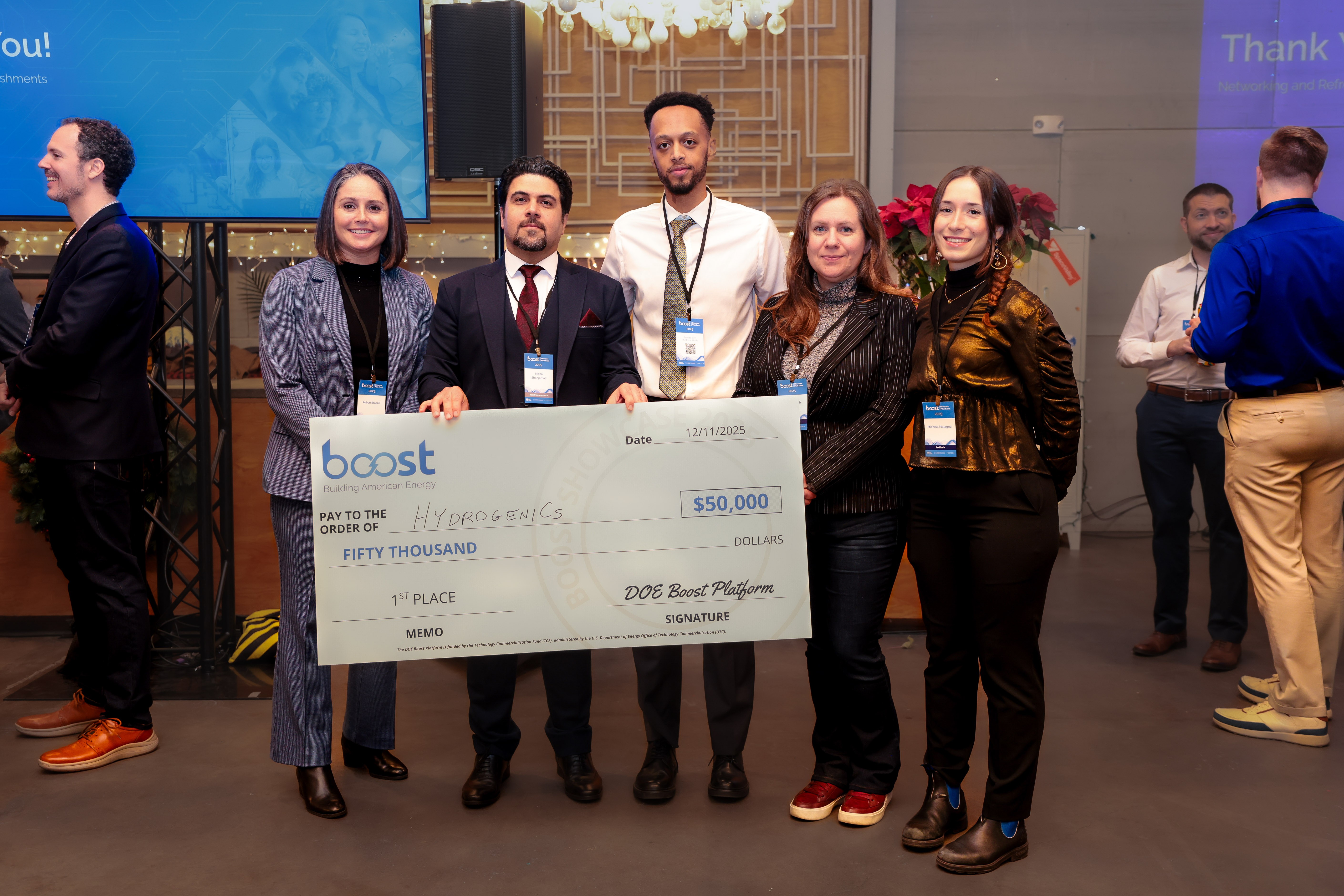America’s Next Tech Hubs: The Rise of Local Innovation Ecosystems
Across the country, cities and states increasingly view innovation as a cornerstone of economic growth. They're making targeted investments in dynamic programs, comprehensive resources, and appealing incentives designed to build thriving startup ecosystems. These initiatives attract high-growth businesses, engage entrepreneurial talent, and transform communities into centers of innovation and opportunity.
As a result, Silicon Valley no longer has a monopoly on entrepreneurial success. States such as Colorado, New Mexico, Massachusetts, and Maryland demonstrate that with strategic support and investment, innovation can thrive anywhere, positively reshaping local economies and communities.
FedTech collaborates closely with federal, state, local, and regional governments to transform these visionary goals into reality. By aligning skilled entrepreneurs with clear objectives, we spark groundbreaking ventures, enhance local capabilities, and attract critical private investments. Our proven approach accelerates regional innovation ecosystems, delivering sustainable job creation, rapid technology commercialization, and long-term economic benefits.
Why Regional Innovation Matters Now
A thriving regional innovation ecosystem is more than a single incubator or a lone research university. It requires a network of interdependent actors that includes universities, entrepreneur-support organizations (ESOs), funders, co-working hubs, incubators, accelerators, and talent pipelines. When these players coordinate, they stitch scattered assets into a cohesive growth engine, and targeted public investment amplifies their impact by supplying critical capital, facilities, and market-opening opportunities.
At the same time, soaring costs in legacy hubs are pushing founders to look elsewhere. The Bay Area’s share of U.S. venture-capital deals slid to a record low of 18.6 percent in 2023, highlighting a decisive migration of investment toward emerging regions (Cheng, 2023). Budding tech centers counter Silicon Valley’s cost pressures with lower living expenses, state incentives, and easier access to office and lab space, making it both practical and appealing for entrepreneurs to build locally.
Federal funding delays have further elevated the role of state and local governments. By launching targeted grants and challenge funds, these jurisdictions can bridge financing gaps and back solutions tailored to regional needs. In turn, entrepreneurship is gaining momentum as a vehicle for job creation and workforce renewal: when communities provide the right mix of resources and support, more residents can start companies, diversify the local economy, and strengthen long-term resilience.
Why Governments Can’t Do This Alone
Building effective regional innovation ecosystems requires more than public funding; it requires experienced partners to bridge government, entrepreneurs, and the private sector. FedTech bridges this gap, helping federal, state, and local agencies extend their reach into regional communities and unlock new pathways for commercialization.
Through our extensive national partnership network, FedTech gains deep insights into what drives regional innovation. We directly engage local ecosystems to identify entrepreneurial talent, offer hands-on support throughout program lifecycles, and create enduring pathways for startup success. FedTech complements government initiatives with the agility, expertise, and connectivity required to turn potential into tangible outcomes.
Examples of Regional Innovation Programs: Lessons Learned
FedTech’s impact is evident through various successful programs launched nationwide. These initiatives illustrate how localized strategies, supported by national expertise, can yield significant outcomes.
Driving Innovation-Led Economic Development
In Montgomery County, MD, a $20 million investment aimed at stimulating economic growth, creating high-paying jobs, and funding businesses facing historical capital barriers resulted in the establishment of two key initiatives: the Technology Innovation Fund ($7 million) and the Founders Fund ($3 million).
FedTech, selected as the third-party administrator, provided comprehensive program management, outreach, application processes, advisory support, and reporting. This collaborative effort anticipates generating over 1,600 new full-time jobs, demonstrating the transformative impact of targeted investment and inclusive innovation.
Fueling Regional Growth Through Trusted Partnerships
DOE Boost
Through Boost, a startup studio delivered in partnership with Sandia National Labs, FedTech has engaged with regional innovation ecosystems across the country, including in Alaska, New Mexico, Georgia, California, Virginia, and Indiana, to address community energy challenges. In each location, we have worked closely with local partners to source entrepreneurial talent, identify mentors, and connect startups with resources that support long-term growth beyond the program. Our approach is deeply collaborative and grounded in listening, taking time to understand each region’s unique strengths, challenges, and innovation goals.
In New Mexico especially, Boost has deepened our commitment to contributing to the local ecosystem and establishing a long-term presence in the region. Through the Boost program, we have supported the creation of four companies that now call New Mexico home. Fostering relationships that support their continued growth as early-stage startups has been a priority. As an external partner, we recognize the importance of listening to local stakeholders, earning trust, and aligning our efforts with their vision.
In Indiana, for example, Evansville’s proximity to coal-fired power plants has led to serious pollution challenges—poor air quality and water contamination that demand urgent attention. These environmental stressors shape the way we think about innovation and impact in the region. Through Boost, we aim to bring together entrepreneurs and technologies equipped to help communities like Evansville confront legacy energy issues and transition toward cleaner, more resilient solutions.
By doing so, we help strengthen innovation capacity, foster cluster development, and grow talent pipelines and job creation that support sustained economic and technological advancement.
Boost is Now Recruiting for the 2025 Cohort! Click Here to Learn More & Apply
The DOE Boost Platform is funded by the Technology Commercialization Fund (TCF), administered by the U.S. Department of Energy Office of Technology Transitions.
NavalX Crucible
The opening of FedTech’s Los Angeles office has enhanced our West Coast partnerships, aligning closely with the Inland Empire NavalX Tech Bridge’s mission of transforming the region into a national security tech hub. Through two years of Crucible programming, we've seen substantial growth in local innovation, driven by universities and strengthened by targeted resources and events.
Crucible alumni now regularly engage in pitch events, incubators, and industry forums, accelerating their growth. As local entities like universities, governments, and NavalX Tech Bridge respond proactively, startups are increasingly choosing to expand their operations locally. FedTech continues to collaborate closely, developing resources and a thriving innovation launchpad in Southern California.
Lessons Learned
Listening first is paramount. Every region has unique priorities, histories, and visions for innovation. FedTech begins every partnership by actively engaging stakeholders, entrepreneurs, community leaders, and economic developers to understand local success criteria, shaping responsive and effective programs.
There is no one-size-fits-all approach to innovation. Some regions are naturally suited to certain sectors—energy, biotech, advanced manufacturing, or dual-use technologies. FedTech identifies and amplifies these strengths, adapting strategies uniquely tailored to each ecosystem’s potential.
Trust is fundamental, particularly in historically underserved areas. FedTech prioritizes building long-term relationships, honoring local expertise, and maintaining consistent, credible engagement. When local partners recognize FedTech as a collaborator rather than an outsider, genuine and sustainable innovation takes hold.
Let’s Build Together
Regional innovation thrives at the intersection of public vision and private-sector execution. Government sets strategic directions, while FedTech helps realize these visions on the ground, alongside local entrepreneurs. Combining your objectives with FedTech’s expertise in commercialization, startup support, and ecosystem development creates powerful programs with lasting regional impacts.
Whether launching new initiatives, enhancing existing programs, or exploring regional innovation possibilities, FedTech is ready to collaborate. From early assessments and co-design workshops to pilot programs and sustained partnerships, FedTech provides the tools and expertise necessary for confident action. Contact us to explore how we can support your regional innovation goals. We are here to listen, adapt, and build with you.
Resources
Cheng, M. (2023, April 14). The share of VC deals that are done in Silicon Valley is at an all-time low. Quartz. https://qz.com/the-share-of-vc-deals-that-are-done-in-silicon-valley-i-1850333943
About the Authors
Ellen Erickson | Alumni & Community Manager
Ellen manages the growing community of entrepreneurs, mentors, advisors, and partners for FedTech. Ellen has experience in small business resource and funding, network building, and relationship management from years in local government and global non-profit organizations. Ellen sits on the SXSW Pitch Advisory Board. She holds a Masters's Degree in International Development from the University of Pittsburgh and a B.A. From Rhodes College.
Paige Leonard | Assistant Project Manager, Innovation
Paige is an Assistant Project Manager driven by a deep passion for tackling complex problems with cutting-edge technology. Her background in innovation and entrepreneurship includes experience at a higher education institution’s innovation and entrepreneurship center, where she co-managed a student incubator and led design thinking trainings with administrators, faculty, and staff to address the university’s most pressing challenges. Paige earned both her MBA and BA from Marshall University.
Recent Posts
Link has been copied.





